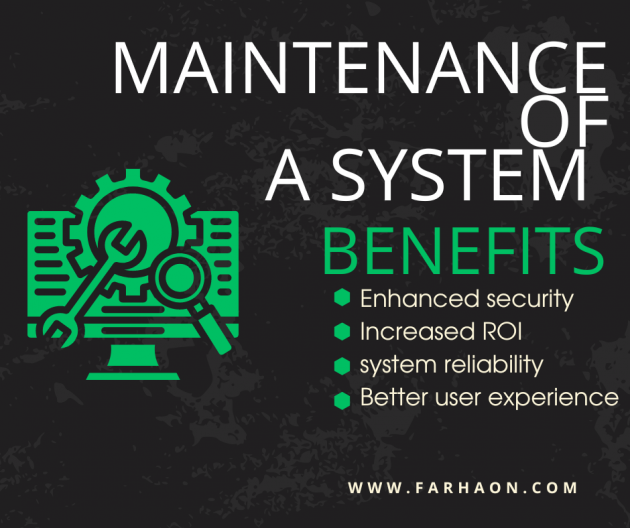
The maintenance of a machine and an ERP system are two distinct activities with different objectives, methods, and tools.
Maintenance of a machine refers to the set of activities aimed at keeping a machine in good working condition and preventing breakdowns. This can involve regular inspections, cleaning, lubrication, repair, and replacement of parts, among other tasks. The goal is to minimize downtime and optimize the machine’s performance and lifespan.
On the other hand, maintenance of an ERP system refers to the set of activities aimed at keeping an ERP system in good working condition and ensuring that it meets the organization’s needs. This can involve tasks such as upgrading the software, applying patches, monitoring performance, managing data backups, and providing user support. The goal is to ensure that the ERP system supports the organization’s business processes effectively and efficiently.
While the two types of maintenance have some similarities, such as the need for regular inspections and repairs, they differ in terms of the types of tools and techniques used. Machine maintenance often involves physical tools and equipment, such as wrenches, lubricants, and replacement parts. ERP system maintenance, on the other hand, typically involves software tools and techniques, such as system monitoring tools and data backup software.
The key difference between the maintenance of a machine and an ERP system is that the former focuses on keeping a physical asset in good working condition, while the latter focuses on keeping a software system in good working condition to support the organization’s business processes.
Taking care of your ERP system on a continuous basis can provide several advantages for your organization. Here are some of the main reasons why you should prioritize ERP system maintenance:
- Increased system performance: Regular maintenance can help improve the performance of your ERP system by identifying and fixing any issues that may be slowing it down. This can help your organization to operate more efficiently and effectively.
- Enhanced security: An ERP system contains sensitive business data, such as financial information and customer data. Regular maintenance can help ensure that the system is secure and protected against cyber threats and data breaches.
- Improved system reliability: Regular maintenance can help ensure that your ERP system is reliable and available when needed. This can help prevent downtime and reduce the risk of business disruption.
- Better user experience: Regular maintenance can help ensure that your ERP system is easy to use and navigate, providing a better experience for users. This can help increase user adoption and improve productivity.
- Increased ROI: An ERP system is a significant investment for any organization. By maintaining the system on a continuous basis, you can help ensure that you are getting the most value from your investment over time.
In summary, continuous ERP system maintenance is essential to ensure that the system is performing optimally and providing the intended benefits to the organization. It can help improve system performance, enhance security, increase reliability, provide a better user experience, and increase ROI.
